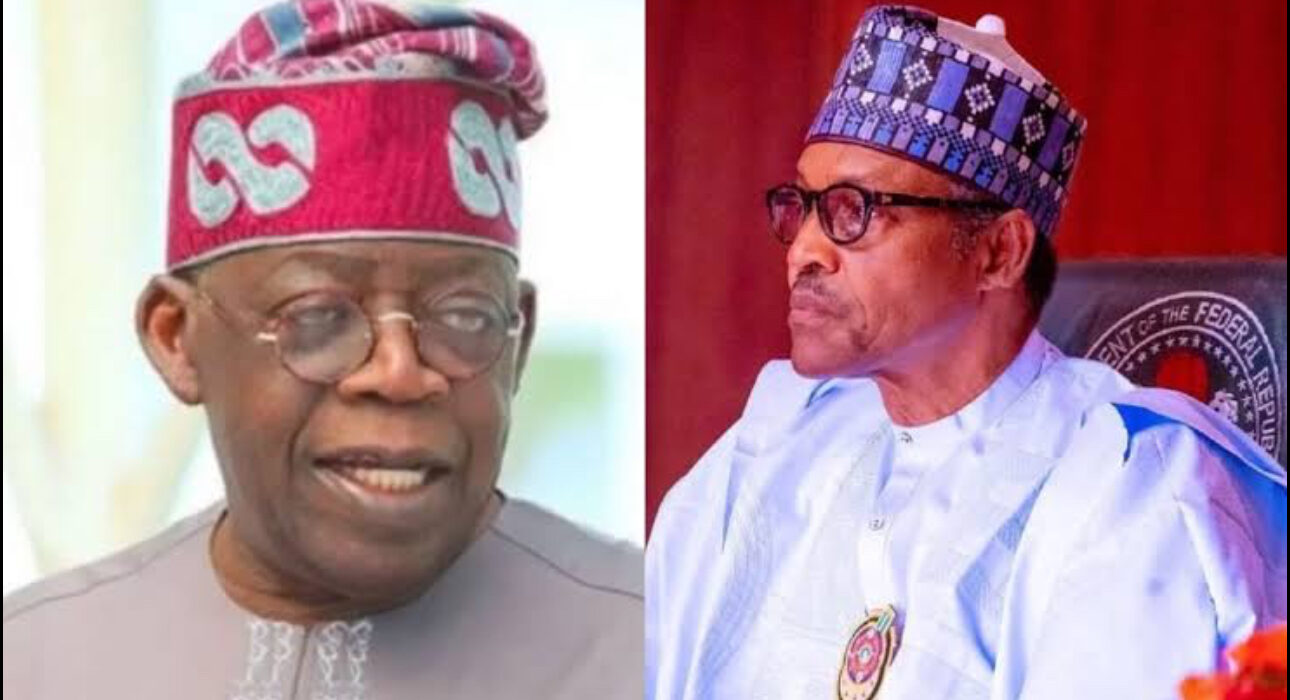Buhari’s Greatest Battle was Intra-cabinet; Tinubu Survived Cabal’s Bobbytrap

History may remember Muhammadu Buhari as a two-term Nigerian president who battled insecurity, economic hardship, and national unrest. But those were not his fiercest enemies.
In truth, Buhari’s toughest war was internal, a quiet, corrosive struggle against a cabal within his own government that nearly wrecked his presidency from the inside out.
Buhari was a man who governed on trust. He gave his appointees responsibilities and space to act, hoping they would serve with integrity. But what he got in return, from a significant minority of them, was betrayal of the worst kind.
These were the “food-is-ready” appointees: men and women more loyal to power than principle. They formed a shadow government, hijacked the machinery of state, and reduced Buhari’s influence to rumors, fake presidential orders, and the now-infamous “body language” narrative.
The strategy of this cabal was clear — isolate voices of reason, particularly Bola Ahmed Tinubu, and place a wedge between Buhari and any figure capable of challenging their grip on power.
Tinubu, ever politically astute, saw through the game. But even he was not spared. His aides in government, including the then number two, were carefully courted and recruited. Promises of promotions and elevation as Buhari’s “preferred” successor were dangled before them. They believed the illusion.
The cabal’s plan was to install someone, anyone who would preserve their access to power.
Retention of influence, not national interest, was their only objective. Tragically, many fell for it. The Central Bank Governor at the time began acting on body language alone, no longer bothering with legal verification.
The transport minister got swept up in the Daura circle, collecting titles and giving “something big” to those translating body language into policy.
Some went as far as resigning to chase the mirage of presidential ambition. But when they lost their primaries and attempted to return, Buhari, in a rare moment of firmness, reportedly said: “You have resigned, you’ve resigned. Gaskiya.”
The Vice President, perhaps the most unfortunate of the lot didn’t resign but spent his personal and political capital chasing shadows. When the results came in and he cried out to heaven, the answer came, in effect: “Did I send you?” By then, the spiritual wind had long shifted, it was with Tinubu.
Tinubu’s journey wasn’t fueled by villa body language, forged memos, or insider cabals. He had no room in the house he helped build. He was underestimated and dismissed. Even those he once empowered turned against him. His main opponents were not fringe politicians, they were Numbers 2 and 3 in the federal hierarchy. Yet, he endured. When he began his campaign consultations in London, a lone voice from Niger shouted “Insha Allah.”
That phrase became his anchor, a divine reassurance that would carry him through the storm.
By the time the Vice President remembered God on the night of his defeat, the campaign train had already moved on. The heavens had spoken.
Today, the cabal finds itself adrift, jobless, powerless, and stripped of the instruments they once abused. No more CBN dollars. No fuel scarcity as political sabotage.
No fake directives. They’ve retreated to new alliances, now lining up behind Atiku, grasping for relevance in a season that no longer belongs to them.
But like Pharaoh’s army chasing what it cannot have, their fate is sealed. The sea has opened and it won’t be long before it swallows the last remnants of their deceit.
In the end, the truth prevailed. Tinubu, the man they schemed to destroy, now stands where they plotted to ascend.
Good morning to all progressives!








